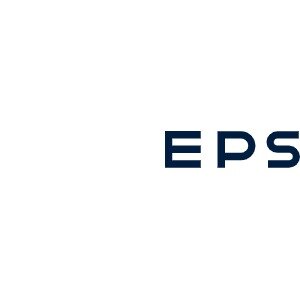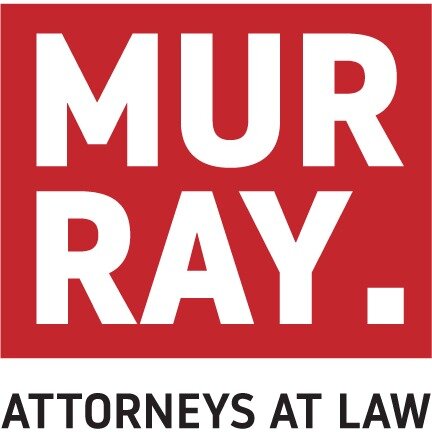Best Project Finance Lawyers in Curaçao
Share your needs with us, get contacted by law firms.
Free. Takes 2 min.
Or refine your search by selecting a city:
List of the best lawyers in Curaçao
About Project Finance Law in Curaçao
Project Finance in Curaçao is a specialized area of law that deals with the financing of large infrastructure and development projects. These projects can include energy plants, hotels, ports, transport facilities, and other substantial developments requiring significant capital investment. Curaçao's legal system, which blends Dutch law with local statutes and international business standards, provides a stable and reliable environment for project finance. The jurisdiction is recognized for its welcoming stance toward international investors and for providing flexible legal structures, making it a favorable destination for project finance transactions in the Caribbean region.
Why You May Need a Lawyer
Engaging a lawyer with expertise in Project Finance is crucial for safeguarding your interests and ensuring the success of your project. Common situations where legal assistance is often required include:
- Structuring finance deals and setting up Special Purpose Vehicles (SPVs)
- Drafting and negotiating loan agreements, security packages, and other essential contracts
- Navigating regulatory approvals and permits required by local authorities
- Managing risk allocation among project participants such as sponsors, lenders, contractors, and suppliers
- Resolving disputes that may arise during the project lifecycle
- Advising on tax-efficient structures for foreign and local investors
- Ensuring compliance with anti-money laundering (AML) and know your customer (KYC) laws
Local Laws Overview
Curaçao's legal landscape for Project Finance is grounded in its status as an autonomous country within the Kingdom of the Netherlands. The civil law system incorporates Dutch legal principles with additional local statutes and regulations. Key legal aspects relevant to Project Finance include:
- Corporate Structures: Flexible entities such as the naamloze vennootschap (NV) and the besloten vennootschap (BV) are commonly used for project companies and SPVs.
- Securities and Collateral: Curaçao law allows various forms of security interests, including mortgages on immovable property, pledges on movable assets, share pledges, and bank account pledges.
- Foreign Investment: There are minimal restrictions on foreign investment, and funds can generally be repatriated freely.
- Licensing and Permits: Regulatory approvals may be required for certain types of projects, such as those involving energy, utilities, or telecommunications. Environmental permits may also be necessary.
- Bankruptcy and Insolvency: Curaçao has modern insolvency laws that address creditor rights and debt restructuring, which are vital aspects of risk assessment in project finance transactions.
- Taxation: The jurisdiction offers attractive tax incentives and free zone regimes for qualifying projects, subject to compliance with local and international tax standards.
- Dispute Resolution: Contracts can provide for local litigation or international arbitration, with Curaçao courts generally upholding the parties' choice of law and forum.
Frequently Asked Questions
What is project finance and how is it used in Curaçao?
Project finance is a method of financing large developments where repayment depends on the future cash flow of the project rather than the sponsors' balance sheet. In Curaçao, this method is used for infrastructure, energy, tourism, and other major projects.
What types of legal structures are commonly used in project finance transactions?
Most project financings in Curaçao utilize special purpose vehicles (SPVs), often structured as NVs or BVs, to isolate project risks and liabilities.
Are there restrictions on foreign investors in project finance projects?
Curaçao generally welcomes foreign investment, with few limitations. However, specific permits or licenses may be required depending on the project's industry.
What types of collateral are recognized under Curaçao law?
Common types of collateral include mortgages over land or buildings, pledges over equipment and shares, and assignments of receivables.
Is international arbitration available for resolving disputes?
Yes, parties can agree to resolve disputes through international arbitration, and Curaçao courts are supportive of such agreements.
Do I need regulatory approval for my project?
Depending on the project's scope, regulatory approvals may be necessary, particularly for developments in regulated sectors or where environmental impact is involved.
What are the main risks involved in project finance deals?
Key risks include completion risk, market risk, regulatory risk, financial risk, and force majeure events. A lawyer can help mitigate these through contract structuring and due diligence.
How can tax incentives benefit my project in Curaçao?
Curaçao offers tax benefits and free zone status for eligible projects, potentially reducing overall project costs. Legal advice is essential to maximize these incentives lawfully.
Are local banks experienced in project finance?
Several local and international banks operating in Curaçao have experience in project finance, particularly for tourism, real estate, and infrastructure projects.
How long does it take to set up a project finance structure?
Timelines vary depending on project complexity, regulatory requirements, and stakeholder involvement, but the process can take several months. Legal guidance helps streamline the process.
Additional Resources
If you are seeking more information or guidance, the following resources may be helpful:
- Curaçao Chamber of Commerce and Industry: Provides information on company registration and business regulations.
- Central Bank of Curaçao and Sint Maarten: Regulates financial institutions and can provide guidance on financial licensing requirements.
- Curaçao Investment & Export Promotion Agency (CINEX): Assists foreign investors and provides guidance on investment opportunities.
- Ministry of Economic Development: Oversees major development projects and economic policy.
- Local law firms with expertise in project finance, corporate law, and regulatory matters.
Next Steps
If you are considering undertaking a project finance venture in Curaçao, it is important to seek early legal advice to navigate the complexities of local law and regulations. Start by:
- Identifying and consulting with a qualified lawyer or law firm experienced in Curaçao project finance.
- Preparing a summary of your project, including the intended structure, stakeholders, and financing needs.
- Gathering necessary corporate documents and identification for compliance checks.
- Discussing potential tax, regulatory, and contractual issues with your lawyer.
- Developing a clear legal and financial roadmap before making binding commitments.
Taking these preparatory steps will help protect your investment and ensure your project progresses efficiently and lawfully in Curaçao.
Lawzana helps you find the best lawyers and law firms in Curaçao through a curated and pre-screened list of qualified legal professionals. Our platform offers rankings and detailed profiles of attorneys and law firms, allowing you to compare based on practice areas, including Project Finance, experience, and client feedback.
Each profile includes a description of the firm's areas of practice, client reviews, team members and partners, year of establishment, spoken languages, office locations, contact information, social media presence, and any published articles or resources. Most firms on our platform speak English and are experienced in both local and international legal matters.
Get a quote from top-rated law firms in Curaçao — quickly, securely, and without unnecessary hassle.
Disclaimer:
The information provided on this page is for general informational purposes only and does not constitute legal advice. While we strive to ensure the accuracy and relevance of the content, legal information may change over time, and interpretations of the law can vary. You should always consult with a qualified legal professional for advice specific to your situation.
We disclaim all liability for actions taken or not taken based on the content of this page. If you believe any information is incorrect or outdated, please contact us, and we will review and update it where appropriate.
Browse project finance law firms by city in Curaçao
Refine your search by selecting a city.













